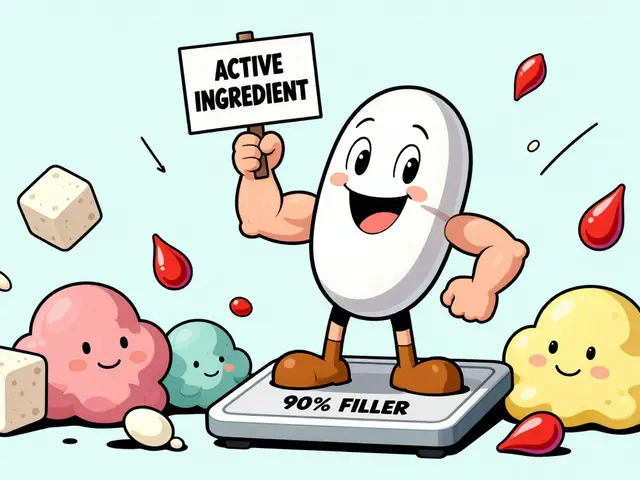Metformin Alternatives: What Works Best for Your Blood Sugar?
If metformin isn’t cutting it for you—maybe it’s causing stomach upset, or your doctor says you need something stronger—you’re not alone. Lots of people look for other ways to keep glucose in check without the side effects they’ve experienced. Below we break down the most common alternatives, when they shine, and what you should watch out for.
Sulfonylureas: Quick‑Acting but Watch the Low Sugar
Sulfonylureas like glipizide, glyburide, and glimepiride push your pancreas to release more insulin. They work fast, so they’re a go‑to when you need tighter control quickly. The downside? They can cause low blood sugar (hypoglycemia), especially if meals are missed. If you have a regular eating schedule and don’t mind checking your glucose often, a sulfonylurea might be worth trying.
SGLT2 Inhibitors & GLP‑1 Agonists: Modern Picks for Weight Loss
Drugs such as empagliflozin (Jardiance) and canagliflozin belong to the SGLT2 inhibitor class. They help kidneys dump excess sugar in urine, which can also lower blood pressure and aid weight loss. GLP‑1 agonists like liraglutide (Victoza) or semaglutide (Ozempic) mimic a gut hormone that reduces appetite and boosts insulin release after meals. Both groups are praised for helping shed pounds—great if metformin left you gaining weight—but they can cause urinary infections or stomach upset, so keep an eye on any new symptoms.
DPP‑4 inhibitors—including sitagliptin (Januvia) and saxagliptin (Onglyza)—are another gentle option. They block the enzyme that breaks down GLP‑1, giving you a modest glucose drop without much risk of low sugar. The effect isn’t as dramatic as SGLT2 or GLP‑1 drugs, but they’re easy on the stomach and usually well tolerated.
Thiazolidinediones like pioglitazone (Actos) improve insulin sensitivity in muscle and fat cells. They work slower than sulfonylureas but can be useful if you have insulin resistance. Watch out for fluid retention or weight gain; they’re not the best choice if you already struggle with heart failure.
When picking an alternative, think about your overall health picture: kidney function, heart health, weight goals, and how often you can check blood sugar. Some meds need dose adjustments if kidneys aren’t working well—SGLT2 inhibitors, for example, are off‑limits in severe kidney disease.
Cost matters too. Metformin is cheap because it’s generic. Newer drugs like GLP‑1 agonists often carry a higher price tag or require insurance prior‑authorization. Check with your pharmacy about coupons or patient assistance programs before committing.
Bottom line: there isn’t a one‑size‑fits‑all answer. Talk to your doctor about your specific concerns—whether it’s stomach upset, weight gain, or risk of low sugar—and let them guide you toward the alternative that fits your lifestyle.

Exploring Alternatives to Metformin: A Guide to Diabetes Management Options
Metformin is a popular medication for managing type 2 diabetes, but some individuals may seek alternatives due to side effects or personal preferences. This article explores seven alternatives to Metformin, including Precose, Januvia, and Ozempic, detailing how each works and its benefits and drawbacks. By reviewing these options, patients and healthcare providers can make informed decisions about diabetes treatment strategies. Discover which alternatives might be a better fit for different lifestyle and health needs.





